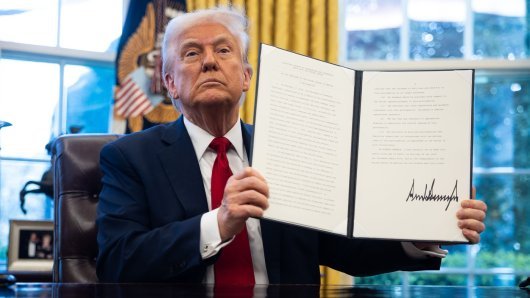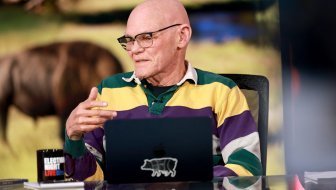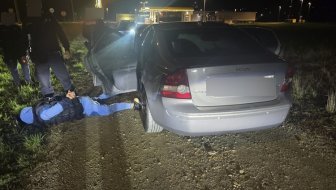Serbian Radical Party leader Vojislav Seselj incited, aided and abetted the persecution of non-Serbs in Croatia and Bosnia and Herzegovina in order to create one Serbian state, in which he closely cooperated with other members of a criminal enterprise, putting aside his political and ideological disagreements with other state leaders in Serbia, the Office of the Prosecutor of the International Criminal Tribunal for the former Yugoslavia (ICTY) said during closing arguments on Monday.
He was a fanatical propagator who contributed to the joint criminal enterprise whose members' goal was to realise their nationalist idea by any means possible, prosecutor Mathias Marcusen said, saying the result were tens of thousands of displaced persons, thousands of prisoners and 905 killed, abuse, sexual crimes, destruction, plunder and destruction of sacral facilities, as described in the indictment.
Those crimes were committed in Vukovar, Zvornik, Sarajevo, Mostar, Nevesinje and Hrtkovci as part of a joint criminal enterprise aimed at creating one Serbian state on Croatian and Bosnian territory.
More than 200,000 Croatian civilians were expelled from their homes. The accused sent thousands of his men to participate in the persecution and they became notorious for their atrocities, Marcusen said, adding that Seselj recruited, organised and controlled them so that, through his crimes, he could realise his Chetnik vision of a Greater Serbia.
The prosecutor said the evidence showed that the idea of creating a Greater Serbia on Croatian and Bosnian territory was carried out by participants in a joint criminal enterprise led by Serbian President Slobodan Milosevic, by using the Serbian Interior Ministry, the Serbian State Security Service (SDB), and the Yugoslav People's Army (JNA), which operated in Croatia and Bosnia and logistically supported Serbian volunteer units, including Seselj's men and local forces.
Marcusen said the members of the joint criminal enterprise, apart from Milosevic, were JNA generals Veljko Kadijevic and Blagoje Adzic, SDB officials Jovica Stanimic and Franko Simatovic, rebel Serb leaders in Croatia and Bosnia - Milan Babic, Milan Martic and Radovan Karadzic - Serbian Interior Ministry official Radmilo Bogdanovic, and Serbian paramilitary leader Zeljko Raznatovic.
Marcusen reminded the trial chamber of evidence of Croatian Serb leaders' demands that Seselj's volunteers be sent to eastern and western Slavonia, Sisak, Novska, Okucani and Podravska Slatina, saying the accused directly responded to those demands and later sent his troops to Bosnia as well.
Marcusen said Seselj personally came to Croatia to incite persecution, including to Vukovar, where he called for a showdown with the Ustasha.
The prosecutor described how territory in Croatia was conquered, saying the Serbian Interior Ministry took part in provocations aimed at dragging Croatian troops into the conflict, after which the JNA would intervene, the Croatian troops would retreat and the JNA would 'secure' the territory.
Marcusen said that in his final, confidential brief, Seselj tried to downplay his role in the joint criminal enterprise by claiming that he was only a recruiting agent for the JNA and that he was the opposition to Milosevic and not part of that enterprise.
Prosecutor Lisa Biersay said that in his inflammatory speeches, Seselj demonised Croats and Muslims, thus preparing the ground for the persecution of non-Serbs in Croatia and Bosnia.
She said that with his words, Seselj struck non-Serbs in Croatia, Bosnia and Hrtkovci, paraphrasing his statement that words were a powerful weapon because they could strike like howitzers.
Throughout the conflict in Croatia, he labelled Croats and the Croatian leadership as people ready to commit genocide, using the word Ustasha to humiliate all Croats, make them a deadly threat to Serbs and justify their destruction, Biersay said, adding that he used the suffering of Serbs in World War Two to scare and mobilise Serbs and incite them to commit crimes against Croats.
Seselj tirelessly promoted a Greater Serbia, tirelessly called Croats Ustasha, tirelessly referred to Bosnian Muslims in derisive terms, tirelessly claimed that Serbs were threatened with genocide and tirelessly called for revenge, she said, adding that when propaganda was repeated, it turned into hatred and violence.
In Serbia, he was a media star, which makes his accountability greater, and his statements and speeches were aimed at encouraging Serbs to commit crimes and freeing them of any responsibility if they committed those crimes, Biersay said.
The prosecution's closing arguments continue on Tuesday.



































